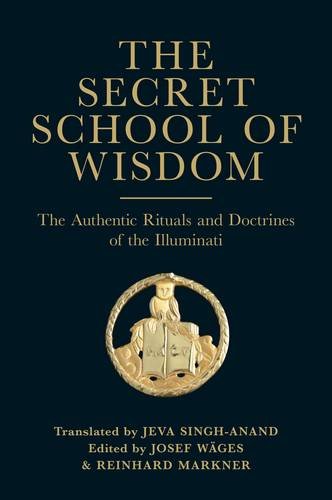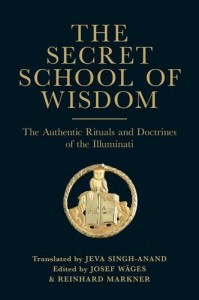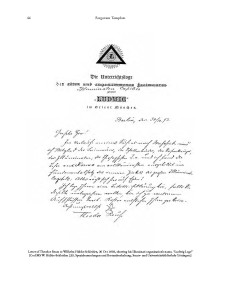In 1776–the same year that the United States declared independence from England–the Illuminati Order was founded in Upper Bavaria by Adam Weishaupt (1748–1830), a professor of natural and canon law at the University of Ingolstadt. As a secret society of freethinkiers, the purpose of the Illuminati was to oppose superstition, bigotry and oppression (both secular and religious) and to embrace the ideals of equality, fraternity, and intellectual enlightenment. Originally consisting of three degrees—Novice, Minerval and Illuminated Minerval—Weishaupt’s chief collaborator and recent Illuminatus Baron Adolf Franz Friederich von Knigge (1752–1796) eventually expanded it into three classes of grades:
- Minerval and Illuminatus Minor
- The three degrees of Freemasonry, along with Illuminatus Major and Illuminatus Dirigens
- The Higher Mysteries:
a. Lesser Mysteries (Priest and Prince)
b.Greater Mysteries (Magus and King)
The Illuminati Order proved immensely popular, and, by the time it was suppressed in 1785, it had in its brief lifetime initiated several hundred members and established numerous local churches, prefectures, and provinces. Shortly after its disintegration, its surviving documents were seized and published by the government. These included texts like Bemerkungen über einige Originalschriften des Illuminatenordens (Frankfurt, 1787); Nachtrag von weitern Originalschriften, welche die Illuminatensekte überhaupt, sonderbar aber den Stifter derselben Adam Weishaupt (Munich: Lentner, 1787); and Johann Heinrich Faber, Der ächte Illuminat oder die wahren, unverbesserten Rituale der Illuminaten: ohne Zusatz und ohne Hinweglassung (Edessa, 1788).
For a group that existed for only nine years, it cast an enormous, if chimerical, shadow, becoming the subject of countless conspiracy theories: “Why was it banned?” “Didn’t it actually go underground, only to evolve into a covert cult bent on world domination (Hail Hydra!)?” “Aren’t Katy Perry, Jay-Z, and Beyoncé all members?” The fact is that the Illuminati Order was banned because Karl Theodor, the Duke of Bavaria, issued an edict on June 23, 1784, banning all secret societies. A second edict dated March 2, 1785, name-checked the order, decreeing:
“lodges of the so-called Freemasons and Illuminati in our country as traitorous and hostile to religion.”
Similar decrees were issued in other regions by Duke Karl Eugen (1784) and Joseph II (1785). As for the second question, the answer is “no.” And for the third question, the answer is “Seriously: no, no, and, no.”
As a result of these decrees, Weishaupt was banished from his country and took a faculty position at the University of Göttingen, where he remained until his death.
Incidentally (and no doubt of interest to readers of this blog), a century later Theodor Reuss would be fascinated by Weishaupt’s organization. He claimed to have attempted a revival of the Bavarian Illuminati in 1880, and 1893 correspondence survives wherein Reuss crudely doctored his Ludwig Lodge letterhead to identify it as an Illuminati Chapter (see illustration below). In 1895, Reuss partnered with Leopold Engel to revive the Illuminati Order in Berlin. These men would also collaborate with Franz Hartmann in founding a German branch of Katherine Tingley’s Theosophical group; known as the Theosophischen Gesellschaft in Europa (Deutschland), Hartmann was elected president, Reuss vice-president, and Engel treasurer. All three would soon after be involved in the 1902 proto-organization that would evolve into Ordo Templi Orientis (although Engel’s role was minor and brief owing to a falling-out with Reuss).
[Above: An example of Theodor Reuss’s “Illuminati” letterhead from 1893, from Richard Kaczynski, Forgotten Templars: The Untold Origins of Ordo Templi Orientis (2012), 42.
One of the reasons that the Illuminati has been such a popular magnet for conspiracy theorists is because it is easy in a vacuum of information to speculate wildly without pesky facts getting in the way. It is thus of the greatest benefit to sincere scholars (and the detriment of the tin-foil hat crowd) that Josef Wäges, Reinhard Markner, and Jeva Singh-Anand have collected the available source material about this group–both published and archival–organized it, and presented it for the first time in their new book, The Secret School of Wisdom: The Authentic Rituals and Doctrines of the Illuminati (Surrey: Lewis Masonic, 2015). The first fifty pages consists of a historical overview of the Illuminati and a note on the numerous sources consulted to produce the text. The main body of the book tackles all of the degrees in order (as I’ve outlined above), presenting for each the relevant instructions, statutes, initiation rituals, and other ceremonies. Finally, an appendix provides an additional 60 pages of supplemental documents. All in all, the volume runs 447 pages.
I would have liked to have read more about the persecution and suppression of the Illuminati and other secret societies around the time of Duke Karl Theodor’s edicts, particularly its effect on Freemasonic lodges. I would also have enjoyed reading an evaluation of how accurate or inaccurate subsequent writers about this group have been, such as Stauffer’s (1918) New England and the Bavarian Illuminati. But I can’t write these words without feeling churlish and ungrateful. For a collection of primary source documents about the Illuminati, this book is extraordinarily valuable, long overdue, and has no equal. It truly stands in a field by itself. Highly recommended and indispensable.
The Secret School of Wisdom can be ordered directly from its UK publisher, Lewis Masonic, as well as Macoy, Amazon, and other book dealers; or for personalized copies, see Illuminati Regalia.




Thank you for your kind words. It is neither churlish nor ungrateful to want more historical information. That sort of interest was, in fact, a major goal of this book, and I don’t think I am doing my collaborators on this project an injustice when I voice the hope that this book will help to fan an interest in the serious study of this secret society among the English speaking academic community.
A tremendous amount of research has been done by German scholars, especially over the last two decades. This research reaches across a broad spectrum of disciplines, from Late Enlightenment philosophy and western esotericism to the history of education and political reform in Europe.
Thanks Jeva! I can never have enough historical information. 🙂